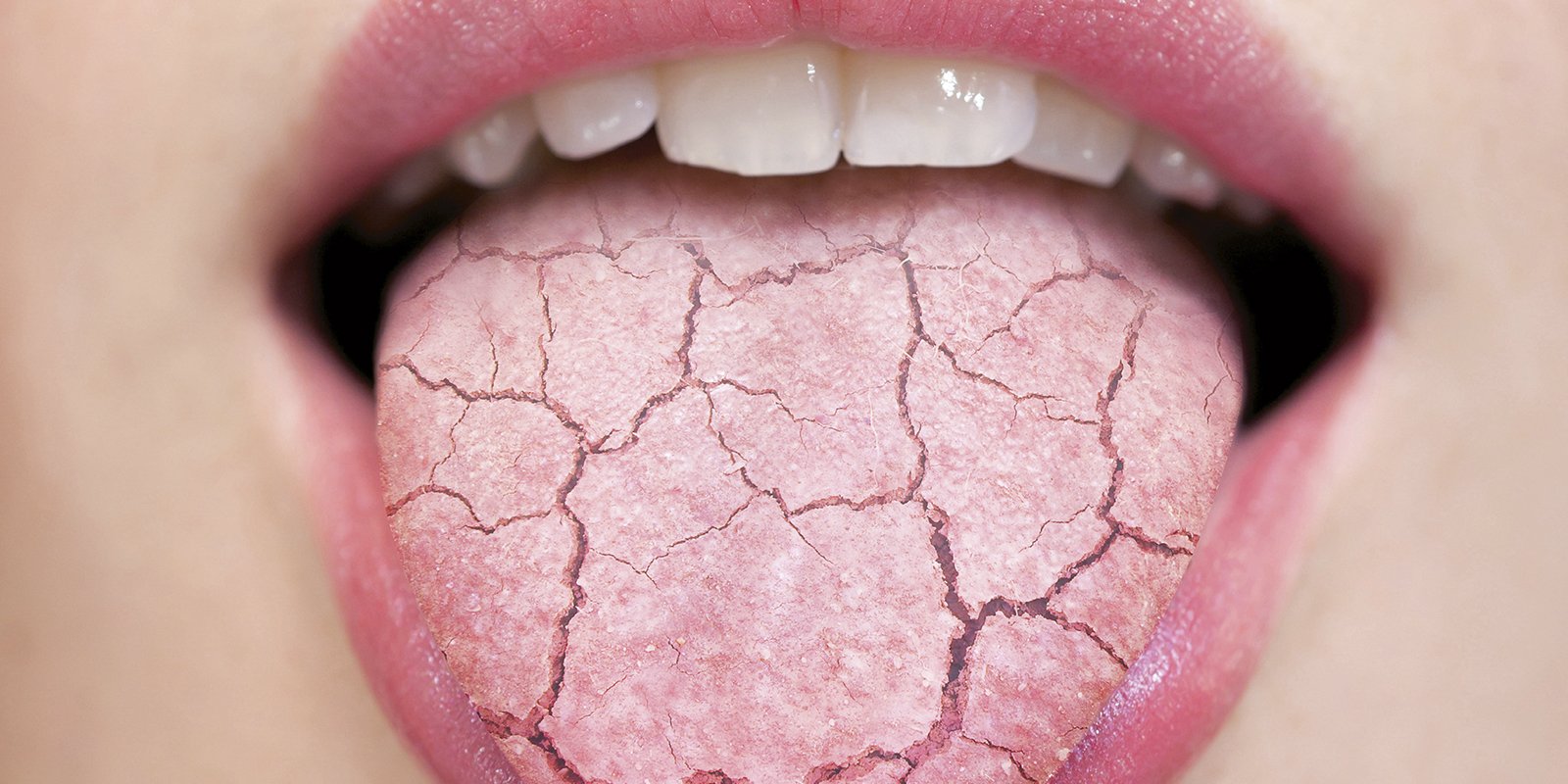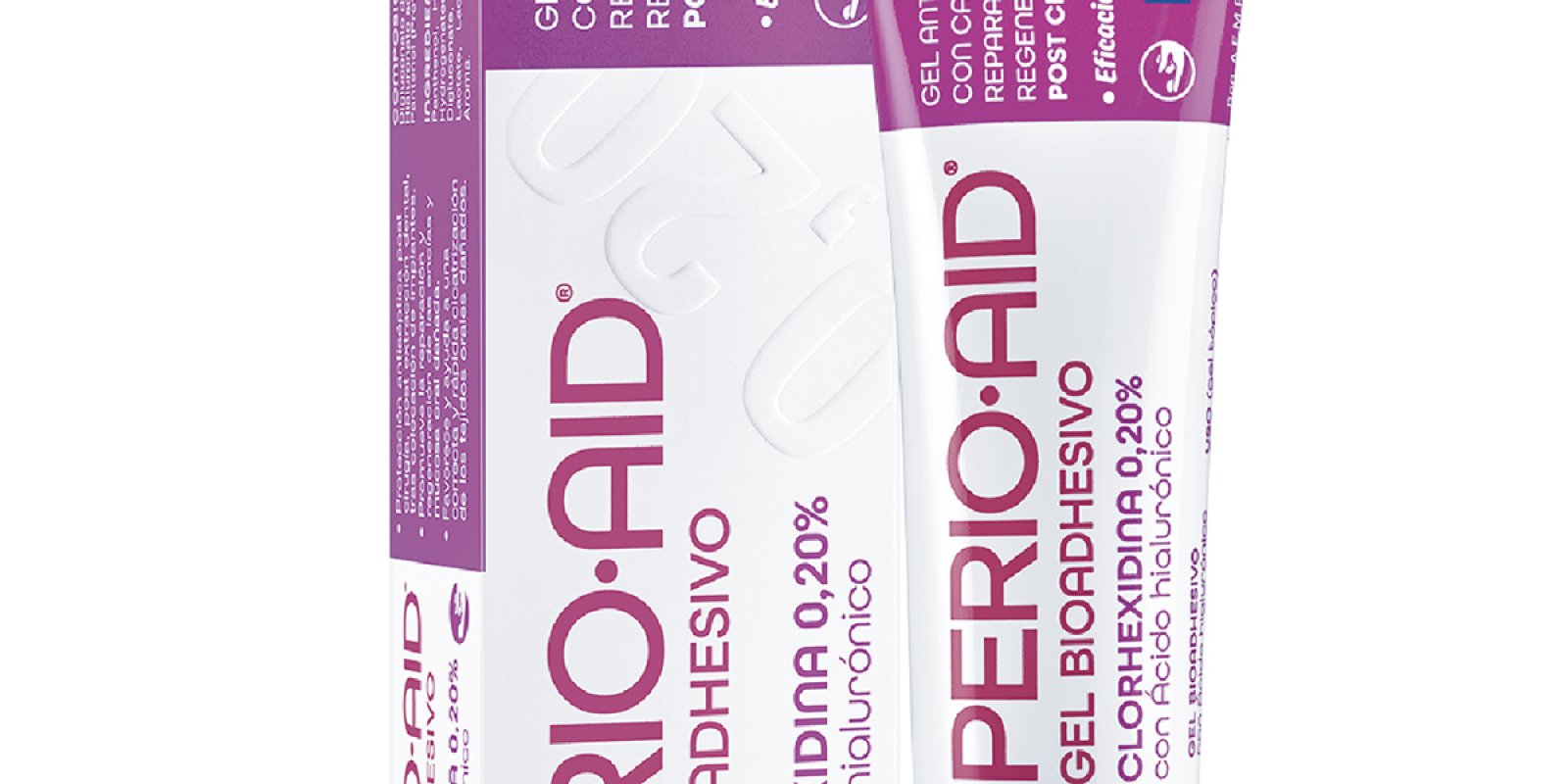DENTAID EXPERTISE
News for dentistry professionals
HOW TO IDENTIFY A PATIENT WITH DRY MOUTH
14 Jan 2019

Discover the causes of xerostomia and what its main signs and symptoms are, in order to detect patients with this disorder and to offer them the best treatment.
Xerostomia is the subjective sensation of a dry mouth, which is usually due to a decrease in saliva caused by salivary gland dysfunction. The presence of saliva in the mouth is very important, because thanks to the saliva, the oral tissues are kept moist, facilitating speech, chewing and swallowing, among other functions.
Saliva also enables natural cleansing and regulates the build-up of bacteria. An adequate level of saliva prevents an imbalance of microorganisms in the oral environment, which could lead to the onset of tooth decay, periodontal disease, halitosis, or bad breath, amongst other diseases and disorders. Xerostomia manifests in one out of every five adults, which is equivalent to 20% of the population between the ages of 18 and 30 years, and in 40% of those over 50.
It affects twice as many women as men, and based on the statistics, is increasingly taking a leading role in society, due to a surge in the incidence of polymedication, one of the main causes of dry mouth. It is a condition that affects general health and quality of life and has been defined by the International Dental Federation (IDF) as “the disease of modern man”.
HOW DO I KNOW WHETHER MY PATIENT SUFFERS FROM XEROSTOMIA?
The patient’s case history should be studied in order to identify possible causes.
The most common are the following:
* Stress.
* Medication.
* Cancer treatment.
* Speaking profusely.
* Old age.
* Other causes: unbalanced diet, smoking and drinking, systemic diseases, absence of teeth and Sjögren's syndrome.
WHAT ARE THE SIGNS AND SYMPTOMS OF XEROSTOMIA?
Signs
* Reduced gloss, and pallor of the oral mucosa.
* Cracked lips and tongue.
* Inflammation and possible Candida sp. infection
* Dry lips.
* Angular cheilitis.
* Increase in the number of caries.
* Thick or stringy saliva.
Symptoms
* Dry, inflamed mouth.
* Halitosis.
* Burning tongue.
* Night-time dryness and difficulty sleeping.
* Difficulty chewing, swallowing and talking.
* Taste alteration, eventually leading to a metallic taste. Sensitive teeth.
¿HOW TO TREAT XEROSTOMIA?
When planning treatment, it will first be necessary to identify whether the process causing the dry mouth is reversible or irreversible, as it is important to know if glandular activity can still be stimulated (by mechanical, chemical or gustatory means) and whether the glands have residual function.
Performing proper, routine oral hygiene is very important, as is considering use of products to hydrate the oral cavity. Furthermore, in cases of more severe xerostomia, this can be combined with the use of products that stimulate natural saliva production, such as tablets, sprays and/or chewing gums containing topical sialagogues.
RELATED ARTICLES

14 Oct 2021
The latest scientific developments on CPC in recent international conferences
DENTAID participates in different international scientific meetings, where the importance of the mouth during the current COVID-19 impacted landscape…

21 May 2021
The 2nd National Multidisciplinary Congress on COVID-19 of the Scientific Societies of Spain highlights the importance of oral health and its impact on SARS-CoV-2
After a year of the pandemic, the 2nd National Multidisciplinary Congress on COVID-19 of the Scientific Societies of Spain brought together multiple…

14 Jul 2020
THE IDEAL FORMULA TO HELP REPAIR AND HEAL DAMAGED ORAL MUCOSA
In recent years, the number of mouth surgeries has increased due to the growth in implant interventions, amongst other reasons. In all these…
Sign up for the DENTAID Expertise newsletter
Sign up for the newsletter